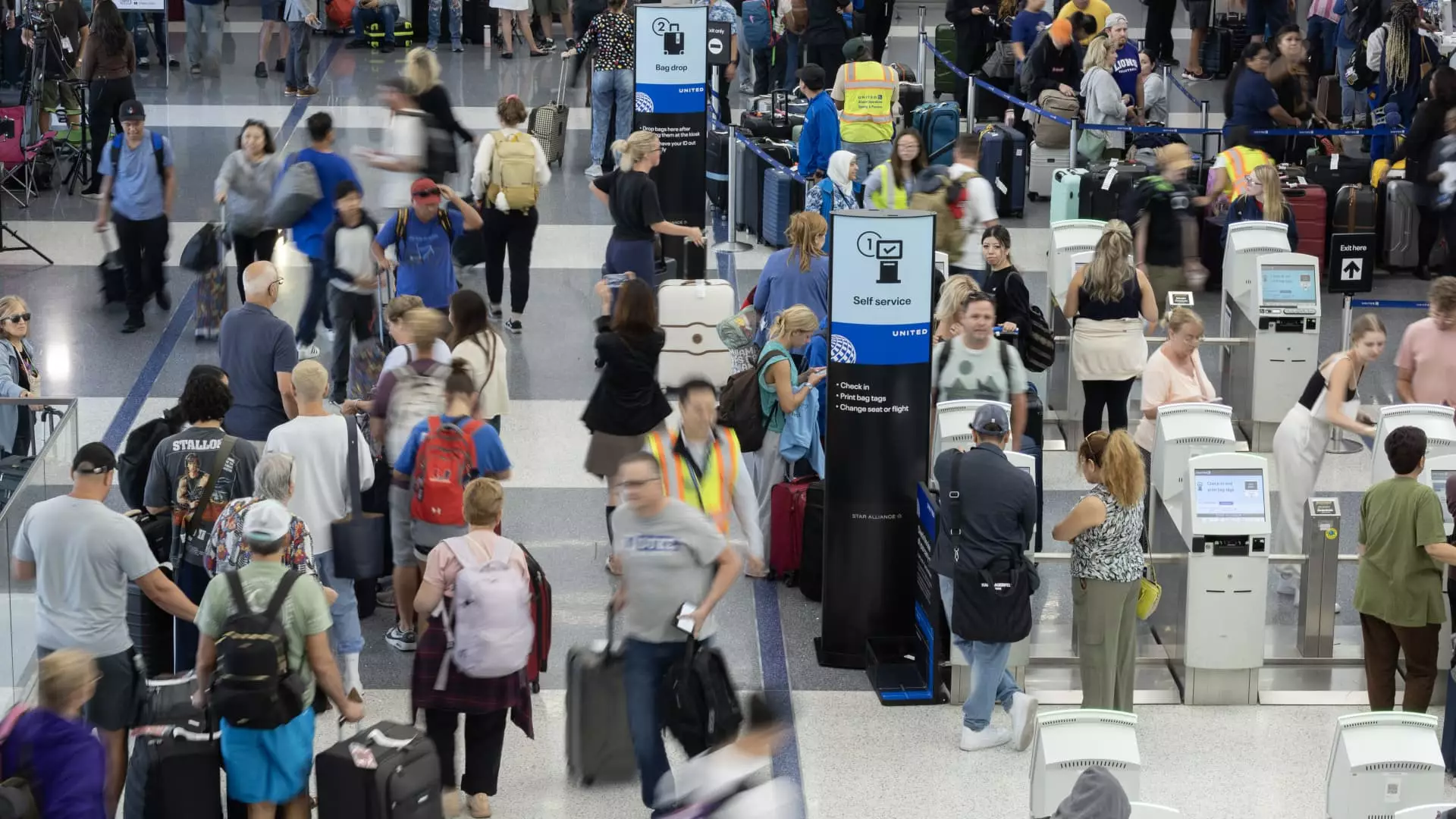After a chaotic day of flight cancellations and delays caused by a global IT outage, airlines were finally beginning to see some relief on Saturday. The number of cancellations decreased significantly, with over 1,200 flights canceled worldwide, compared to more than 5,000 the day before. However, the United States was still heavily impacted, with over 900 cancellations on Saturday and about 3,400 on Friday. Additionally, more than 12,000 U.S. flights were delayed, causing further frustration for passengers.
Unforeseen Disruptions
The disruptions caused by the IT outage were likened to those typically seen during severe weather events such as winter storms or tropical cyclones. However, what set this situation apart was the sudden and unexpected nature of the outage. Airlines had no time to prepare for the technical issues, leaving them scrambling to assist passengers during one of the busiest travel periods – a summer weekend.
The chaos was attributed to a software update from CrowdStrike that went awry, leading to a major outage of Microsoft systems for businesses globally. This IT failure not only impacted airlines but also disrupted operations in various other industries. The repercussions of this incident were significant, with thousands of flights affected and countless passengers left stranded or delayed.
In the wake of the disruption, airlines worked diligently to recover and accommodate affected customers. United Airlines COO Toby Enqvist commended the efforts of his team in resolving the crisis swiftly and ensuring the safety and well-being of passengers. While the airline had to cancel and delay a substantial number of flights, they were optimistic about returning to a near-normal operation on Saturday.
Despite the progress made in resolving the IT outage, its effects lingered on. United Airlines still had to cancel about 7% of its mainline flights on Saturday, an improvement from the staggering 22% cancellation rate on Friday. Similarly, Delta Air Lines saw progress, reducing its Saturday flight cancellations to about 10% from 31% the day before. To alleviate the inconvenience caused to passengers, airlines waived fare differences and fees for those affected by the disruptions.
The aftermath of the global IT outage continued to plague airlines, causing widespread flight cancellations and delays. While recovery efforts were underway, the incident served as a reminder of the vulnerabilities of our interconnected digital systems and the profound impact they can have on various sectors, including the aviation industry. It was a challenging time for both airlines and passengers, highlighting the need for robust contingency plans and swift response strategies in the face of unforeseen disruptions.


Napsat komentář